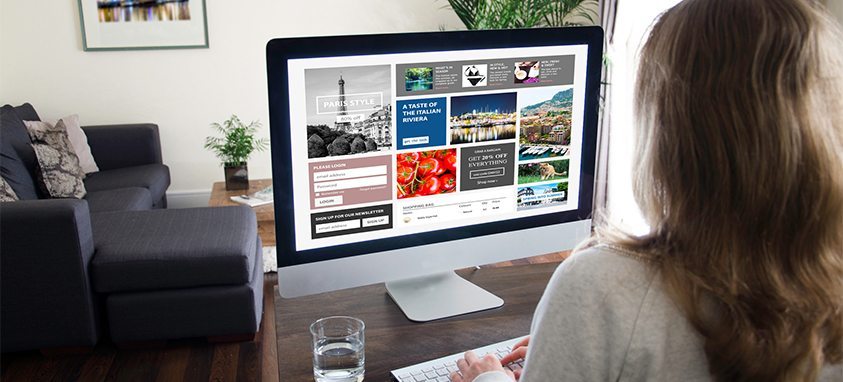We live in a digital world, and marketing your event in that world is all about engagement: drawing people in, engaging with their curiosity and interest, and showing them that your event is one they don’t want to miss. While social media apps can help meeting planners promote their events, a trending hashtag on Instagram or a retweet on Twitter doesn’t do as much if the online face of your event—the website—is subpar. From visuals to SEO to the ease of the registration process, here are six tips to help you put your best home page forward.
Keep It Simple, Keep It Short
One of the most unappealing things a website can have is an immense amount of words on the home page. Keep it short and provide the information needed in a clear and easily digestible way. The name of your event, information on when and where the event is happening, cost of attendance, and where to buy or register tickets should be readily available to anyone who visits your website. The harder you make it for people to find this information, the less likely they will go hunting for it.
Provide an Easy Checkout
You’ve successfully set up a clear and easy path to get information about the event, and the attendee has committed to purchasing a ticket or registering for the event—only when it’s time to check out, there are four different steps to go through to make a payment. Don’t bog down the final process. Studies show that each step in a checkout process leads to a 10 percent reduction in transaction. Make this process straightforward and easy.
Show Them Some Proof
A little bit of influence goes a long way. According to Eventbrite’s research most of us make decisions based on other people’s behaviors, more than 70 percent of customers look for social approval or at online reviews before making purchases. Use this to your advantage. Include quotes and testimonials from past attendees or featured speakers from prior events. This will help add to your event credibility and boost potential attendee confidence in pursuing the event.
Visually Captivate Them
According to Eventbrite’s research, after potential attendees visit your page, they go seeking evidence about the claims they just read. Use visual cues to provide a glimpse into the event experience. Show off with photos of people smiling, focused and engaged at a previous event. We are a visually stimulated society, prove that this is the event to go to.
Make your website mobile friendly
Our phones can do almost anything a computer can and we are constantly using them. There has been a 160 percent increase in purchase completions through sites and payment processes that are built for mobile phones. Depending on what kind of ticketing process you have and which ticketing partner you are using, they should be able to help build a website that has a mobile-optimized payment process.
Optimize SEO
SEO can be a huge factor in helping ideal attendees organically find your event site. Using the right keywords so that your ranking on search engines such as Google will be high is key to your site and event’s success. Do your research on how to optimize keywords with tools like Moz and Google’s Keyword Planner. Test and compare multiple keyword results to see which is a better fit. When you do find those magic keywords, incorporate them in your headlines, copy and image tags.



